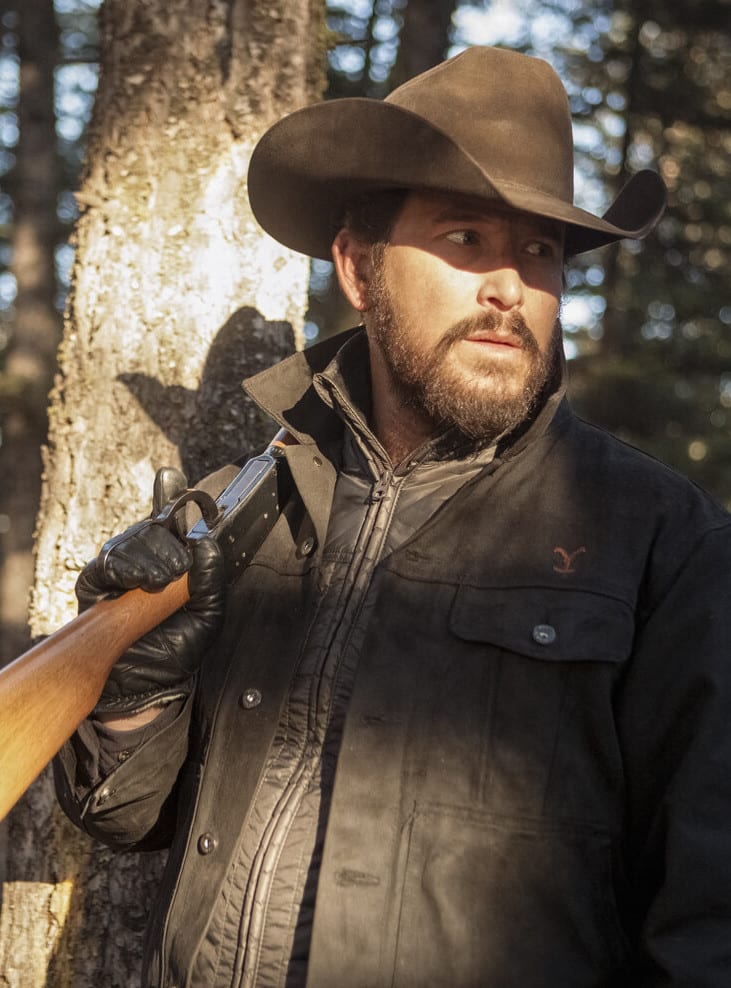Taylor Sheridan is Correct: Critics Have Become Irrelevant


To be clear, Taylor Sheridan didn’t outright say that today’s film and TV critics are irrelevant. That platitude belongs to Joe Rogan.
But Taylor left little doubt that Joe Rogan snatched the words from his mouth. This isn’t Podcast Fanatic; however, it’s TV Fanatic, and Taylor’s accession to those remarks is highly relevant and, as it happens, true.
Unfortunately, Taylor Sheridan is being lumped in with conservatism because everyone has to have a label nowadays, whether it makes sense or not.


Since Yellowstone isn’t following the Disney formula, which resulted in brilliant artistic achievements such as The Acolyte and She-Hulk (heavy on the sarcasm), Taylor must be a dangerous right-winger.
The reality is far different, at least to anyone who actually watches Yellowstone or Taylor’s other notable achievements, like Sicario, Mayor of Kingstown, and Tulsa King. Taylor can be correct in his assertion and not be a Republican operative at the same time.
The Cultivated Intellective
It’s difficult to frame the lead-up to Tayler Sheridan’s comments without indulging in the political nature of the TV critic business. But I’ll get to that in a minute. Besides, it’s not always as overtly political as it seems.
In many cases, these studios are well aware that they are pushing out crap. However, with a fleet of critics ready to sacrifice themselves on the altar of the almighty ‘impressions rating,’ even the worst sewage scrapings to ever see the light of day have hope.
“They’re confounded by its success. They can’t get their head around it. The New York Times has done multiple, multiple articles where they’re doing this essay on ‘How is this shit so popular?’”
-Taylor Sheridan on the Joe Rogan Podcast
Someone should produce a documentary on the bubble that many of the big-name, veteran critics live within. Sheridan correctly references the “disconnect” between the entertainment industry, the critics who fawn over the product, and the audience.
Once you’ve tasted caviar, it’s hard to return to frozen tilapia filets on Taco Tuesday. The ever-widening gulf between the critic and the audience is a device of their own making.
The problem with living inside a bubble is how easy it is to forget everything on the outside. Peripheral vision abdicates in favor of the tunnel point of view.
When a Rotten Tomatoes critic score of 85% is up against an audience score of 30%, never doubt the actuality of that. There is no contemplation, no self-introspection. There is only an astonishing lack of understanding as to why that 45% divide exists.
Professional Critics are Paid
Honestly, there’s simply no getting around this one. Someone is paying the bills, and the critic’s value rides a social media wave.
The divisive nature of the time we live in doesn’t allow for deviations from the status quo. Independent thought holds little value in the coin of the realm.
Publishing an opinion that departs from the prodigy of the collective is one of the most effective ways to shut off the outflow of currency, no matter what side of the aisle one stands on. “Go along to get along,” as the old saying goes, mostly because it pays well.
Fortunately, audiences are far more up-to-speed with this methodology and vehemently disagree. So, if critical determinations rarely agree with the audience, forcing the audience to ignore them, what is the point of the critic?
Besides, no one is looking for Claudia Puig or Ben Mankiewicz to tip the scales on a movie-going decision. Most are jumping on YouTube and TikTok, catching word-of-mouth, or making a decision based on the trailer.
No entity is more familiar with this than Walt Disney Studios. The disparity between audience and critical appraisal of Disney shows and movies is often massive. It’s doubtful there are any other studios with so many.
The audience, for the most part, can give two flips on what most critics think about Disney or Disney-backed productions.
The Cultural Divide
This is not about taking sides, at least not from the point of view of this author. For some, however, it is.
Critics are far too concerned with TV and film productions meeting some sort of cultural standard that changes like a chameleon from month to month rather than the worth and value of the product.
Unfortunately, we live in a time of divisiveness that spans oceans of philosophical, moral, cultural, and political seas. In the case of Taylor Sheridan, that cultural divide is undeservedly rubbing off on his creations.
Critics like to lump Yellowstone in with right-of-center thinking despite the fact that Yellowstone is far from a right-wing utopia. In fact, it’s rare to see a show that flows so well through the various aspects of both sides without overtly insulting either one.
Yellowstone is far from a Trey Parker and Matt Stone brainchild. Taylor Sheridan was very clear on this in a November 2022 interview:
“The show’s talking about the displacement of Native Americans and the way Native American women were treated, and about corporate greed and the gentrification of the West, and land-grabbing. That’s a red-state show?”
Anyone who watches Yellowstone with an open mind has to agree. There is simply no other solution. However, the powers that be and the film and TV critics they employ disagree in a big way.
Recent seasons seem to be changing some minds on that front, but the point about distrust of today’s critics remains. It doesn’t matter where the critic rating currently sits on the Tomatometer. The show will remain one of the most popular programs on the planet.
In fact, the level of ongoing popularity is even more astonishing, considering that Yellowstone lacks a solid, familiar home. Most newcomers to the show can’t figure out if it’s on Paramount Network, Paramount+, Peacock, CBS, or anywhere else.
An Airing of Grievances or Legitimate Criticism?
Of course, appearing on the Joe Rogan podcast is not going to change anyone’s opinion of Taylor Sheridan or the movies and shows he has and is working on.
This is despite the fact that Joe Rogan is more of a centrist than left or right. Unfortunately, with the masses being so divided, especially those in Hollywood versus rural and country America, “centrist” is ideologically right or left, depending on where people stand.
They seem to feel a need to judge any project by how is it looking at the lens through today’s new ‘question morality.’ What should we be making movies about? And you can make a s*****y movie about something they support, and they’re gonna support that movie.
-Taylor Sheridan on the Joe Rogan Podcast
As such, critics frequently lambast Yellowstone and several of Sheridan’s works for poor character arcs, ridiculous premises, extensive melodrama, and boring plots.
If this is true, what does that say about the audience, especially when Yellowstone is breaking records each season?
Either Taylor Sheridan has a solid point, or millions and millions of viewers are highly melodramatic, with vapid minds for creativity and artistic appeal.
Here’s to thinking that the professional TV critic’s relevance amounts to little or nothing.
Do you feel like critics are still relevant today? Will Taylor Sheridan become a pariah, or will his projects continue to be successful? Let us know what you think in the comments!
What are your thoughts about critics these days?
Watch Yellowstone Online
The post Taylor Sheridan is Correct: Critics Have Become Irrelevant appeared first on TV Fanatic.
Source: TV Fanatic
Recent Posts
Players’ body hits out at ‘confusing’ schedule and wants Nations League of cricket
World Cricketers’ Association calls for reform of calendarWCA also wants modernisation of global governing bodyThe…
Samsung’s Galaxy A36 and Galaxy A26 Both Offer Big, Bright Screens Under $500
The Galaxy A26 and A26 also run a truncated version of Samsung's AI magic called…
You Can Control the Newest Samsung TVs With a Flick of Your Wrist (And a Samsung Watch)
The loneliest round of Hokey Pokey.
Advertisers Finally Return to X in Effort to Cozy Up to Trump Administration
All it took was upending democracy to make a couple bucks.
Apple’s base iPad didn’t get AI, and this chart totally explains why
Apple just this month after a very long, 2+ year wait. But curiously, the new…
Doctor Who Reunites Christopher Eccleston and Billie Piper in New Audio Series
The duo are celebrating 20 years since their TARDIS debut.